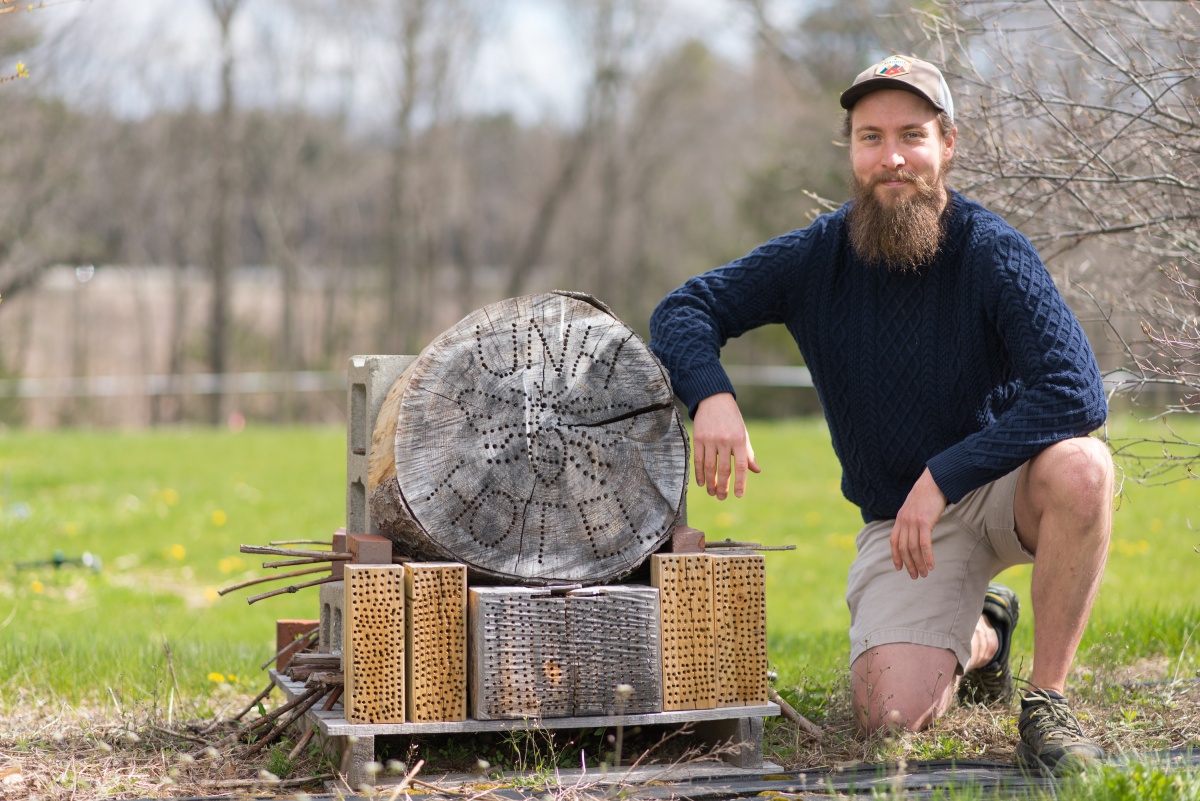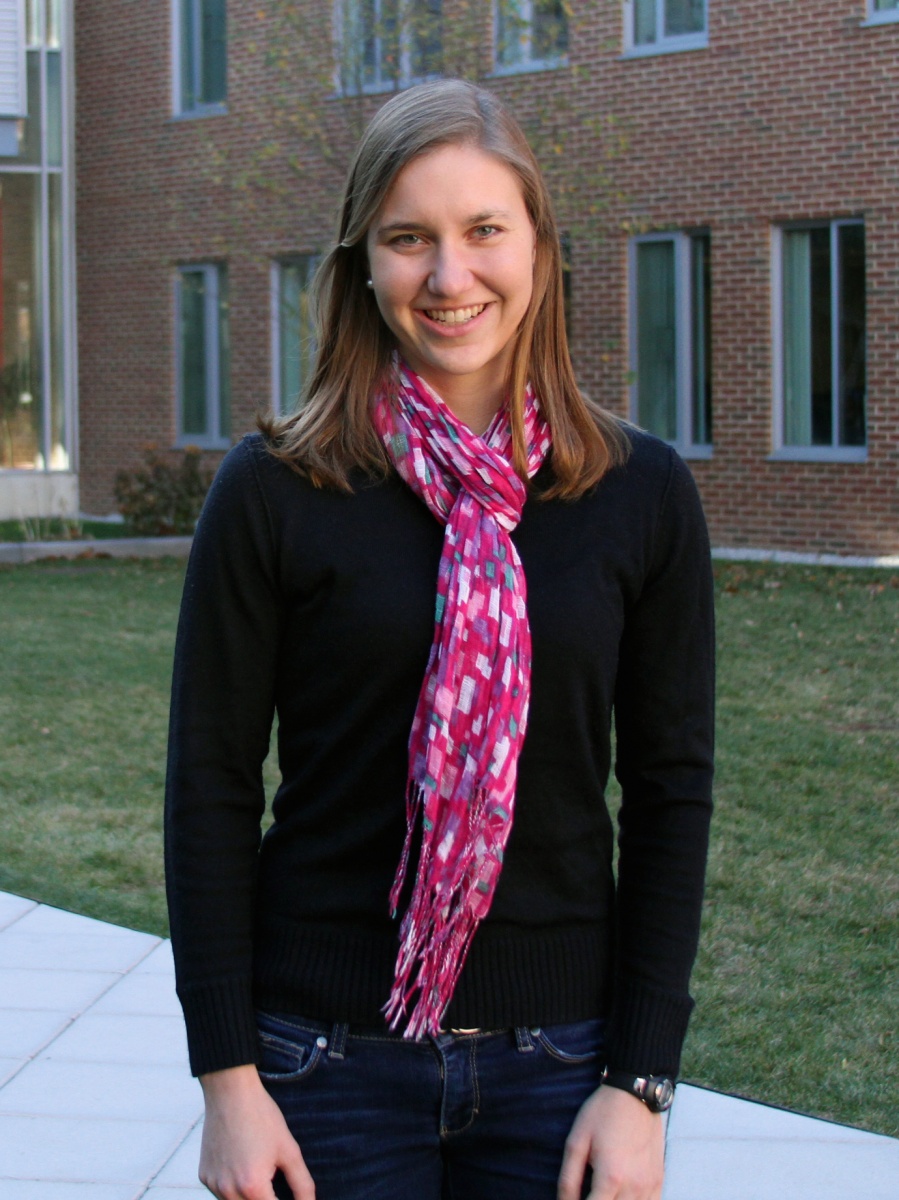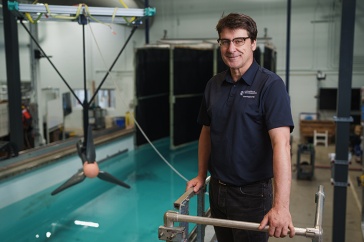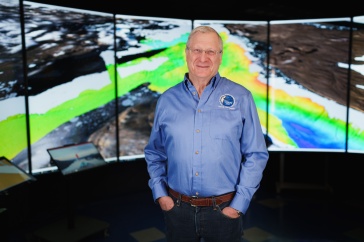A senior engineering student with an eye toward bringing reliable power to developing nations and a doctoral student looking at maternal care in carpenter bees are UNH recipients of the National Science Foundation’s competitive Graduate Research Fellowship. Wyatt Shell’s fellowship will support his bee research with assistant professor of biological sciences Sandra Rehan, while Paige Balcom ’16 will use her support to pursue a graduate degree in mechanical engineering at the University of California, Berkeley.
NSF graduate research fellows receive up to three years of support, including an annual $34,000 stipend, a $12,000 cost-of-education allowance and opportunities for international research and professional development. Those dollars translate into precious research time for recipients, allowing them to drop income-earning commitments like teaching assistantships to focus more completely on research.
“It’s like a dream come true for any grad student.”
“A full-time research position has been hard to balance with classes and TA’ing,” says Shell, who managed Rehan’s lab before starting his Ph.D. “This will give me more of an opportunity to dive full-on into my research and to mentor students, both in the field and at the bench.”
Shell is researching a species of native carpenter bee, Ceratina calcarata, which is considered “sub-social”: They lack the elaborate social organization for which honeybees are famous, but they aren’t entirely loners, either. This summer, he’s exploring whether populations of Ceratina from Georgia, the southern tip of its range, have two broods per year instead of one.

Wyatt Shell, who studies with assistant professor of biological sciences Sandra Rehan, received a Graduate Research Fellowship from the National Science Foundation. (Photo: Jeremy Gasowski)
“In other species, being able to have more than one brood in a breeding season is postulated as a strong prerequisite for more complex social behavior,” he says. “This is cool because it represents a foundational step toward more complex social behavior, and because they’re a native species, it has both ecological and agricultural applications and can inform conservation efforts.”
Shell, originally from Springfield, Massachusetts, whetted his appetite for research as an undergraduate at Bard College. “I’m feeling so grateful and fortunate to be able to secure this fellowship,” he says. “It’s like a dream come true for any grad student.”
For Balcom, this GRF launches a graduate school career that taps her passion for engineering solutions for the developing world. At Berkeley, she’ll join the lab of professor of mechanical engineering Van Carey to study energy and multiphase heat transfer.
“We’ll be looking at how heat transfer technologies can be applied in developing nations, specifically looking at power generation systems and refrigeration systems and possibly even desalination, using the extra heat to take dirty water and make it drinkable,” she says. This funding will let her pursue her own research project within Carey’s lab.

While the West Coast is new territory for the Londonderry, New Hampshire, native and Hamel Scholar, she’s traveled extensively while at UNH, with study abroad and internships in Germany, Wales and Madrid. She led an Engineers Without Borders project to implement a clean water system in Uganda and was on the Project OASIS team that traveled to Costa Rica with a sustainable aquaponics system they developed.
“I’ve had a solid engineering education, but outside the classroom, with internships and fellowships; UNH is so strong in that area,” she says.
Calling the NSF application process “intense” (nearly 17,000 applicants competed for 2,000 awards), Balcom heaps praise on UNH’s Office of National Fellowships and its director Jeanne Sokolowski, as well as on associate professor of mechanical engineering Yannis Korkolis, her research mentor. “UNH has the resources, I believe, to really equip students who have the vision and desire to make something happen,” Balcom says.
In addition to Shell and Balcom, incoming graduate student Clarice Perryman has also received a GRF. A senior at Earlham College, Perryman will study methane production in the permafrost ecosystems of northern Sweden with associate professor of Earth science and Class of 1940 professor Ruth Varner. In 2015, Perryman participated in the Northern Ecosystems Research for Undergraduates program Varner directs.
-
Written By:
Beth Potier | UNH Marketing | beth.potier@unh.edu | 2-1566
















































